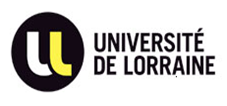Accueil du site > Production scientifique > Global host molecular perturbations upon in situ loss of bacterial endosymbionts in the deep-sea mussel Bathymodiolus azoricus assessed using proteomics and transcriptomics
Global host molecular perturbations upon in situ loss of bacterial endosymbionts in the deep-sea mussel Bathymodiolus azoricus assessed using proteomics and transcriptomics
Date de publication: 6 février 2019
Camille Détrée, Iman Haddad, Emmanuelle Demey-Thomas, Joëlle Vinh, François H. Lallier, Arnaud Tanguy, Jean Mary
BMC Genomics 20 109 (2019). DOI
Travail réalisé sur le site de l’ESPCI.
Abstract
Background Colonization of deep-sea hydrothermal vents by most invertebrates was made efficient through their adaptation to a symbiotic lifestyle with chemosynthetic bacteria, the primary producers in these ecosystems. Anatomical adaptations such as the establishment of specialized cells or organs have been evidenced in numerous deep-sea invertebrates. However, very few studies detailed global inter-dependencies between host and symbionts in these ecosystems. In this study, we proposed to describe, using a proteo-transcriptomic approach, the effects of symbionts loss on the deep-sea mussel Bathymodiolus azoricus’ molecular biology. We induced an in situ depletion of symbionts and compared the proteo-transcriptome of the gills of mussels in three conditions : symbiotic mussels (natural population), symbiont-depleted mussels and aposymbiotic mussels.
Results Global proteomic and transcriptomic results evidenced a global disruption of host machinery in aposymbiotic organisms. We observed that the total number of proteins identified decreased from 1118 in symbiotic mussels to 790 in partially depleted mussels and 761 in aposymbiotic mussels. Using microarrays we identified 4300 transcripts differentially expressed between symbiont-depleted and symbiotic mussels. Among these transcripts, 799 were found differentially expressed in aposymbiotic mussels and almost twice as many in symbiont-depleted mussels as compared to symbiotic mussels. Regarding apoptotic and immune system processes – known to be largely involved in symbiotic interactions – an overall up-regulation of associated proteins and transcripts was observed in symbiont-depleted mussels.
Conclusion Overall, our study showed a global impairment of host machinery and an activation of both the immune and apoptotic system following symbiont-depletion. One of the main assumptions is the involvement of symbiotic bacteria in the inhibition and regulation of immune and apoptotic systems. As such, symbiotic bacteria may increase their lifespan in gill cells while managing the defense of the holobiont against putative pathogens.








